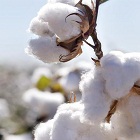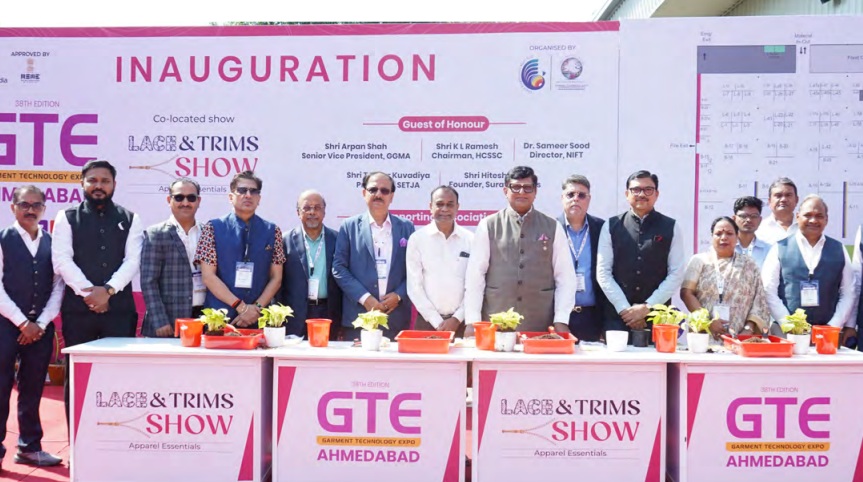FW
Operating income for the US retail industry is expected to grow between four and five per cent for the year ahead. Sales are expected to grow in the three to four per cent range. Pressures from foreign exchange and excess inventory will ease, with operating profit up five to seven per cent after a very weak 2016. Sales growth will accelerate six to eight per cent, supported by direct-to-consumer selling and international growth.
Larger apparel sellers will continue to emphasize top-line organic growth through direct-to-consumer channels, buoyed in part by the significant international expansion opportunities for many brands. Though input costs are rising, they remain manageable. Apparel and footwear sellers, on the other hand, will be squeezed as consumers continue to spend more on healthcare, rent, home-related products, electronics and cars, while weak traffic trends and competitive pressure will continue to impact operating performance of department stores.
Discounters/warehouses will see operating income decline two to three per cent, and Walmart, which accounts for 75 per cent of this subsector, will continue to see weak performance as wage hikes and investment for future growth squeeze its profits. Meanwhile, operating profit will grow less than one per cent in the office supply subsector in the year ahead.
"On the back of promising production, USDA increased its estimates for 2016 US crop to 16.5 million bales, up 300,000 from the December supply demand report. Domestic mill use was cut to 200,000 bales and lowered to 3.3 million, down from the prior estimate of 3.5 million. The estimate for exports was raised 200,000 bales as USDA typically does when it increases crop size and was 12.2 million. Thus, ending stocks for July 31, 2017 were estimated to increase 300,000 bales and are now estimated at 4.8 million."

On the back of promising production, USDA increased its estimates for 2016 US crop to 16.5 million bales, up 300,000 from the December supply demand report. Domestic mill use was cut to 200,000 bales and lowered to 3.3 million, down from the prior estimate of 3.5 million. The estimate for exports was raised 200,000 bales as USDA typically does when it increases crop size and was 12.2 million. Thus, ending stocks for July 31, 2017 were estimated to increase 300,000 bales and are now estimated at 4.8 million.
The world crop was estimated at 104 million bales, up 1million from the November estimate. World consumption and exports were essentially unchanged. Thus, world carryover was increased by the same 1million bales. Imports of cotton to India, notably 1 million bales in August and September, suggest the USDA continues to carry its estimate of Indian stocks some 3-4 million bales too high. Nevertheless, world stocks still exceed 85 million bales.
Reviving the ‘Made in US’ tag

US cotton is attempting to revive its ‘Made in US’ tag. As difficult as the road to that revival may be, US and world cotton continues to battle for fiber market share. To date, the battle has won by China. Yet, prices of polyester have seen a significant rise. Most of the world’s acid-based chemical fibers are manufactured in China. Thus, cotton has been presented a small window to slow the decline in consumer preference. Nevertheless, the battleground remains unfavourable unless cotton can regain consumer confidence.
Shipping to the world
Mills continue to support the market in spite of negative yarn spinning reports that have a number of Pakistani spinners facing bankruptcy. The problem is more associated with Pakistan than any other country as yarn prices in China have seen some improvement. US export sales climbed to a new marketing year high for the week ending 12/1/2016 as net sales totaled 409,400 RB (405,200 Upland; 4,200 Pima). The most significant sale was to Japan. The fact that Japanese purchases were large at this time of the year is suggestive that Japanese yarn spinners feel prices will rise. Too, China remained a large scale buyer.
Export shipments also improved significantly as shipments climbed to a marketing year high, 237,700 RB (229,700 Upland and 8,000 Pima). Export sales to date total 4.7 million bales compared to 3.0 million bales at the same time a year ago. Shipments total 3.0 million bales verses a comparison of 1.9 million bales year ago. Thus, sales are on pace to be a million bales or larger than the current USDA export estimate of 12.2 million bales. The pace of actual shipments is also ahead of the pace needed to meet the current USDA estimate. Thus, look for USDA to continue to increase its estimate of the demand for US cotton. Too, the high quality of the 2017 US crop is finding unusually strong demand from international mills.
The demand side of the price equation received an additional boost as mills are not fully covered for the first quarter of 2017 and are poorly covered for the second quarter. Brazil, Australia and the US merchants are all actively looking for high grades to fill the needs. While the US has sufficient quantity of cotton at present time, the Southern Hemisphere poses a different picture. Merchants are pressed to find quantity and the Australian 2016-17 crop is just emerging. Australian plantings have noted a significant jump as some 520,000 hectares were planted compared to only 312,000 last year.
China accounted for 35 per cent of the apparel imported into the United States for the 12-month period ending October 31. However, imports from China was down nearly seven per cent in the one-year period. Fewer clothes were imported this year compared to last year as US apparel brands and retailers headed to lower-wage countries such as Vietnam, India and Bangladesh for their production.
The most favored country for apparel making after China is now Vietnam. Apparel exports from Vietnam to the US grew 3.7 per cent in the one-year period ending October 31. That accounted for 13 per cent of all apparel imported into the United States. Bangladesh is also growing in importance when it comes to apparel manufacturing. Big retailers such as H&M and Zara have consistently headed to this extremely low-wage country to have goods produced in big factories.
For the one-year period ending in October, Bangladesh’s contribution to total apparel imports of the US was about 6.5 per cent. That was about the same as the previous year. India only exported 3.65 billion dollars in apparel to the United States, but when factoring in fabric and other textiles, the total jumped to 7.2 billion dollars.
The Textile Association (India) (TAI), Mumbai Unit organized International Textile Conference on “Make in India – Global Vision of Indian Textile Industry” on December 1 and 2 at the The Lalit hotel, Mumbai. The conference received an overwhelming response.
C. Bose, President, TAI, Mumbai Unit welcomed the chief guest, Ujjwal Uke, IAS, Principal Secretary (Textiles), Government of Maharashtra and key note speaker R. D. Udeshi, President-Polyester Chain, Reliance Industries Limited. He also welcomed the awardees, speakers, press, media and delegates.
In his inaugural address, Ujjwal Uke, the chief guest emphasised that the industry and government should work hand-in-hand to achieve the super ordinate goals of the Make in India campaign. He emphasised on positive vision by both industries and individual for the future growth of the country.
Giving the highlights, V. C. Gupte, chairman TAI, Mumbai Unit and convener of the conference said that ‘Make in India’ campaign aims to facilitate investment, foster innovation, enhance skill development, protect intellectual property and build best-in-class manufacturing infrastructure in India. The textile sector is one of major thrust areas planned in this mission providing growth drivers, FDI, investment and employment opportunities. He said that TAI’s Mumbai Unit thought of bringing national as well as international thought makers to give their views for the success of its Make in India campaign.
In his keynote address, R. D. Udeshi highlighted the comparative advantages and competitive strengths of India as fast emerging economy. He pointed out fibre base, modern technologies under the TUFs scheme and thrust on technical textiles. He remarked that the industries should avail of the opportunities to the best advantages to excel in the international competitive environment.
The Mumbai unit of the TAI has set a precedent of felicitating the textile professionals for their outstanding contribution in the field of textile industry. In this Conference, the Mumbai unit of the TAI felicitated chairman Jayantibhai Jariwala, chairman & managing director Colourtex Industries Pvt. Ltd. and G. T. Dembla, hairman, Precision Rubber Industries Pvt. Ltd. with The Lifetime Achievement Awards.
The Sri Lanka Apparel Exporters Association (SLAEA) held its Annual General Meeting recently in Colombo. Felix A Fernando, Director, Omega Line was appointed the new Chairman of Association. Rehan Lakhani and Azeez Rumi were appointed the new vice chairman and treasurer respectively. On his part, the new chairman pledged support to the industry along with the executive committee and the Council. He expressed gratitude to his predecessor, Saifuddin Jafferjee for an outstanding job done in the last two years.
Fernando's speech revolved around the importance of apparel industry to the economy of the country and the state of the global apparel industry today. He said that the textile and apparel export accounted for 46 per cent of the total exports which accounts for 6 per cent of the GDP in Sri Lanka. Income from the Apparel industry is the second largest forex source. It also accounts for nearly one million direct and indirect employments out of a total labour force of 8.3 million. In other words, 12.5 per cent of the country's total labour force is employed in the apparel industry, and it is equivalent to 46per cent of the total employment in the industrial sector.
Although it was disheartening to digest the current economic realities and the state of world economy and Sri Lanka’s own economy, the Association values the current government's desire to achieve a sustainable development through export led growth with globally connected value chains. He thanked the Minister of Finance for 75 per cent proposed rebate for additional profits from exports, as a result of government's drive to encourage and increase the country's exports.
Nike has reported better-than-expected quarterly revenue and profit, fueled by higher demand across markets such as Western Europe and Greater China and lower costs. Sales in North America, its biggest market, rose three per cent in the second quarter ended November 30. Sales in Greater China rose 12 per cent in the latest quarter. Excluding the impact of currency changes, sales in the region jumped 17 per cent. Net income rose 50 cents per share in the three months ended November 30 from 45 cents per share a year earlier.
Selling and administrative expenses fell two per cent. Revenue rose 6.4 per cent. However, gross margins contracted 140 basis points to 44.2 per cent, due to increased product costs, a strong dollar and higher off-price sales. Nike has been facing intensifying competition from rivals such as Under Armor and Adidas in North America.
A resurgent Adidas has been chipping away at Nike’s dominant position through its popular Yeezy collection designed by rapper Kanye West. Nike’s basketball category has come under pressure from Under Armor's NBA-star Stephen Curry’s signature shoe line.
Nike is the world’s largest athletic apparel and gear maker. Nike’s gear is widely seen on courts and running trails, but the brand also has remained on-trend as part of the growing consumer interest in athleisure — a term that describes the growing acceptance of wearing athletic apparel and shoes just about anywhere.
With digital India initiative, the National Handloom Development Corporation (NHDC) has developed a mobile app for the benefit of the handloom weavers. The ‘E Dhaga’ app was launched by textiles minister Smriti Irani in a programme organized at Handloom Haat.
In her address, she said the app seeks to address concerns of individual weavers such as availability of raw material, delays in supplies and ensuring stocks in depots. She congratulated the NHDC for taking up the development of the app in a short time. On his part, Ajay Tamta, Minister of State for Textiles highlighted the app will enhance the transparency. Rashmi Verma, Secretary Textiles emphasised the need to engage weavers to use the app that is very user friendly. She informed the gathering that the app will be a handy tool in the hands of the weavers and society to transact business with NHDC.
Development Commissioner of Handloom Alok Kumar talked about the benefits of this app while Managing Director NHDC Srinivas indicated the lead time will be reduced considerably by using this app. The app is available in Hindi, English and Telugu and will also be available in other languages like Bengali, Odiya, Asameese and Urdu by January 15, 2017.
India International Garment Fair (IIGF) will be held in New Delhi from January 18 to 20, 2017. The event is aimed at helping exporters from India showcase their latest designs and apparels for the upcoming season. It is expected to attract buyers from all over the world. India’s rich heritage of fabrics mixed with its artisans offers buyers a staggering range. Indian factories can also produce small runs and offer a variety of embellishments giving more value to the customer.
With the dynamics of the global garment and apparel industry changing considerably in the last couple of years, the industry is shifting to India, the world’s most diversified clothing exporter.
IIGF is the flagship event of the Apparel and Export Promotion Council (AEPC). It has been building bridges between global buyers and suppliers from India for the last three decades. For this edition, AEPC has partnered with virtual fashion trade show platform Fashionablyin to create a virtual buyers’ lounge. Fashionablyin aims to make buyer trips more efficient by engaging them with the right suppliers. The company will match buyers with suppliers by planning meetings in advance and facilitating discussions with suppliers. The Fashionablyin Virtual Buyers Lounge will be great place for buyers and suppliers to connect and build relationships in a friendly and casual environment.
The synthetic textile industry in India wants the excise duty on synthetic yarn to be reduced from 12.36 to four per cent. It also wants a two per cent excise duty to be imposed on cotton yarn. At present this is zero. The Indian synthetic textile industry is valued at Rs 1, 20,000 crores. Growth is driven largely by value added segments. However the share of synthetic textiles in total textiles in India is just 35 per cent as against the global average of 65 per cent. This is due to the high burden of taxes like excise duty and customs duty. So the industry wants the duty structure rationalized.
India is one of the world’s leading manufacturers of manmade textiles. Due to heavy investments in world-class manufacturing plants, continuous innovation, new product mix and strategic market expansion, Indian manmade fibers are set to take centre stage in the global arena. Export of manmade fiber yarns in June 2016 registered a year-on-year growth of 35.9 per cent. Polyester is the largest segment of the Indian manmade fiber and rayon textile industry.
Indian exports manmade fiber textiles to more than 146 countries. Turkey, Egypt, Indonesia, Brazil, and Germany are major importers of Indian manmade fiber yarns.
Pakistan’s denim exports to the United States fell by 3.3 per cent in 2016. One reason, say manufacturers, is the high cost of production. While a number of countries provide zero-rated facilities to their exporters, in Pakistan exporters have to face taxes such as the export development surcharge and the withholding tax. China provides free electricity for the first three years to new units.
Denim manufacturers in Pakistan face hard pricing pressures due to capacity additions and cancellation of a few orders. Pakistan is the second largest exporter of denim in the world after China. Exports of cotton denim fabrics from Pakistan stood at around 51 million square meters worth Rs 39 billion in 2016.
Turkish denim exports increased from 3.9 million meters to 46 million meters in five years. Chinese denim exports to the United States grew up from 6.9 million meters to 87 million meters in the same period. World trade in denim fabric averages 6, 70,000 tons a year. The global market for denim is forecast to reach 64.2 billion dollars by 2020, driven by increasing disposable income. Europe represents the largest market worldwide. The market situation does not allow global denim players to increase consumer prices and therefore, they have to absorb the price increases from denim fabric producers worldwide.












